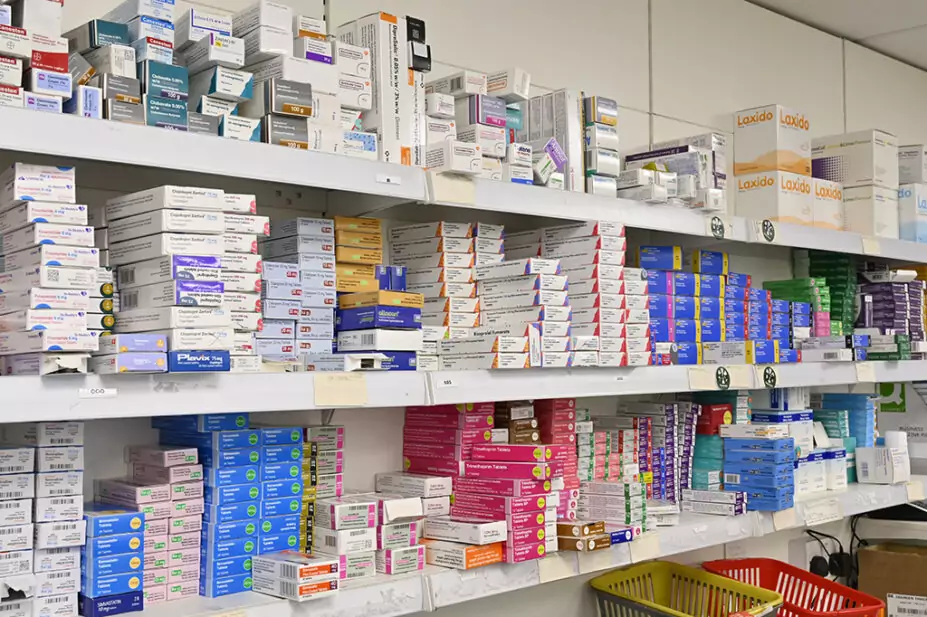
DR P. MARAZZI/SCIENCE PHOTO LIBRARY
The British Generic Manufacturers Association (BGMA), has backed the concept of a ‘lifecycle adjustment’ (LCA) to levies charged by the government, which have been proposed as part of an overhaul of the statutory scheme for branded medicines pricing.
The LCA, put forward in a Department of Health and Social consultation on the branded medicines scheme, which closed on 10 October 2023, would levy different rates on older and newer medicines, and the rate would vary depending on competition.
Products subject to the mechanism would be liable for a higher ‘supplementary’ payment percentage if they were operating in a market with lower competition, and a flat, lower LCA percentage payment if operating in a more competitive market.
The proposals define an ‘older’ product as “any product where the active substance has been marketed in the UK for at least 12 years”.
The consultation document says that if the new LCA approach is taken for newer products — where the active substance has been marketed in the UK for less than 12 years — the levy would be set at 9.7% in 2024, 11.1% in 2025 and 15.4% in 2026.
For older products where there is low competition, the charge would be set at 36.0% in 2024, 38.0% in 2025 and 40.0% in 2026.
Older products “with competition” would be levied at 10.0% across all three years.
If the LCA approach is not introduced, the levy charged would be 21.7% in 2024, 23.7% in 2025 and 26.6% in 2026 for all products, the consultation proposes.
The current charge is 27.5% for all products, which was introduced in April 2023.
In a statement published on 11 October 2023, outlining its response to the consultation, the BGMA said it supported the concept of the LCA but called for a “tailored approach to reflect market dynamics and avoid unintended consequence”.
Mark Samuels, chief executive of the BGMA, said: “We are pleased that the Statutory Scheme consultation recognises that branded generic and biosimilar medicines are subject to different market dynamics and competitive pressures, and as such, a one-size-fits-all approach across all branded products is not suitable for the next five years.
“It is critically important that a properly tailored approach is taken to this sector, allowing sustainability and growth. Branded generics and biosimilars account for nearly 40% by volume of all branded medicines sold for just 17% of the cost. Therefore, we strongly support a different way of seeking a contribution from the branded pharmaceutical industry. We support the concept of the LCA proposal in the Statutory Scheme consultation.
“However, as it is a new concept, we strongly recommend a number of amendments to minimise unintended consequences and align it to how the market operates in practice.”
In a statement published on 9 October 2023, outlining the view of the Association of the British Pharmaceutical Industry (ABPI), as well as views of several of its member companies, the ABPI said: “While the industry is open to measures that support innovation and competition, it believes the proposed Life Cycle Adjustment will introduce even more instability to the UK market and be too imprecise and open to challenge, placing a considerable additional regulatory burden on companies.”
As part of the statement, Jackie Williams, general manager at ABPI member company Astellas Pharma, said: “While Astellas agrees with the principles of driving competition and supporting innovation in the UK, the proposed changes to the Statutory Scheme would be counter to this ambition. The Lifecycle Adjustment principle, with seemingly arbitrary 12-year and 80% thresholds, and punitive payment percentages proposed for the supplementary rates, does not move towards an internationally competitive fixed rate that would provide certainty and stability for our business in the UK.”
The government is also in discussions with the pharmaceutical industry over the future of the ‘Voluntary pricing and access scheme’ (VPAS), which is due to end on 31 December 2023.
The VPAS was agreed in 2019 and, in December 2022, the UK government announced that levy rates under the scheme would increase by 11 percentage points, from 15.0% in 2022 to 26.5% in 2023, prompting two major drugs manufacturers, AbbVie and Eli Lilly, to leave the scheme.
A spokesperson for the Department of Health and Social Care said it would analyse consultation submissions on the statutory scheme and an update would be provided in due course.


